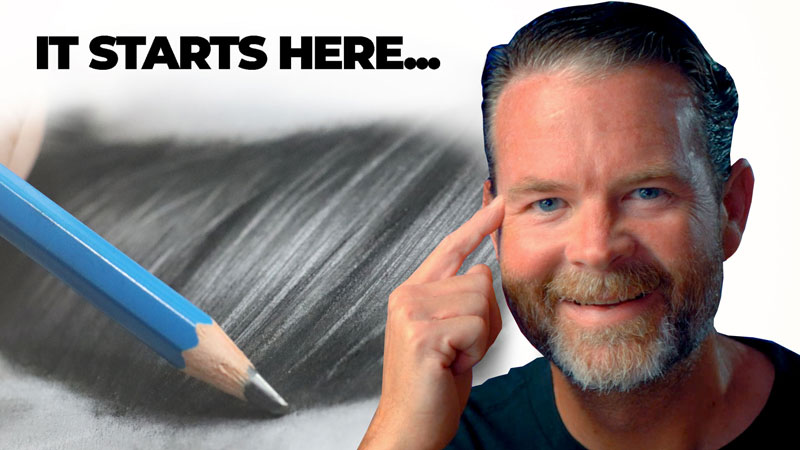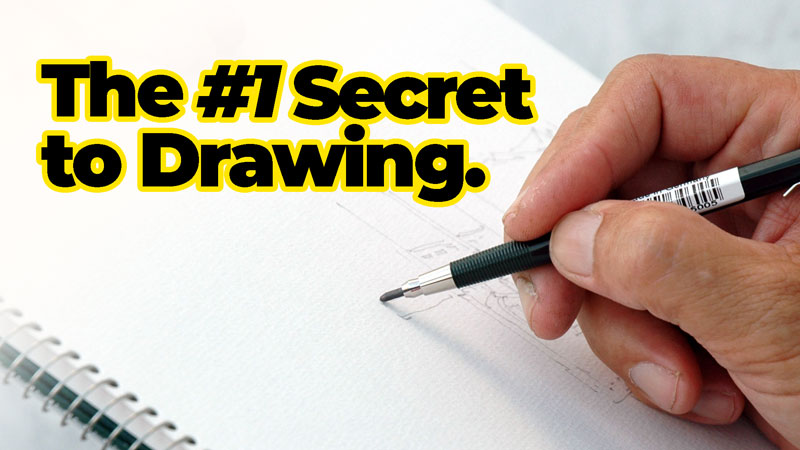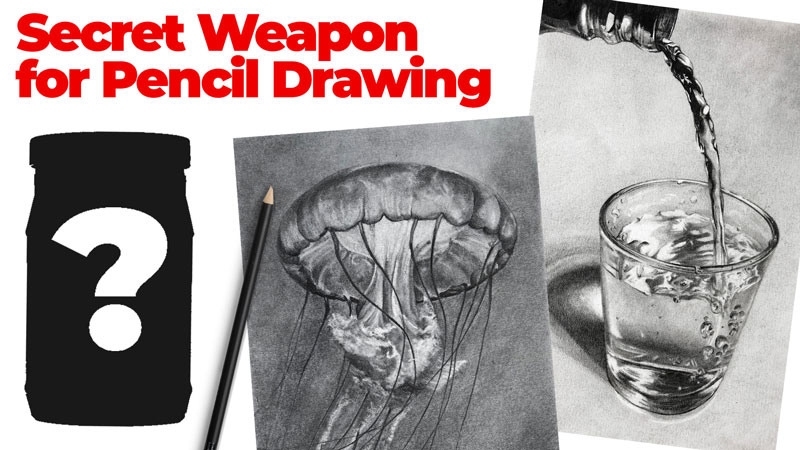Erasers Are Not Just For Mistakes
Erasers can be used for much more than fixing mistakes. In fact, erasers can be used as a mark making tool. In this drawing lesson, we’re going to cover the basics of four different types of erasers that you’re most likely to use in your drawings.
The Rubber Eraser
There are four main types of erasers, and we’ll take a look at each one of these individually. We’ll start with one of the most common forms of eraser, the rubber eraser. This is referred to as a rubber eraser since it was originally created using rubbers, but these days, cheaper products are typically used.
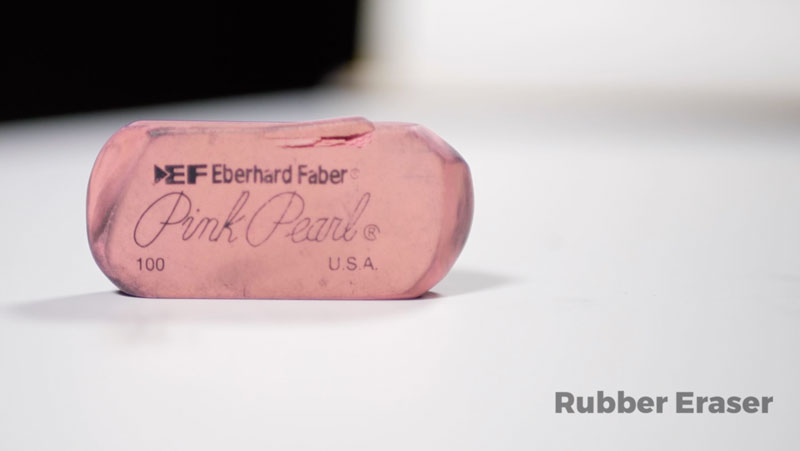
When a rubber eraser is used, it basically smears the graphite on the surface when a light touch is applied. With a heavier touch, more of the graphite is removed. This eraser lifts off the graphite as it crumbles or falls apart, leaving eraser shavings. These can be easily wiped away using a drafting brush.
The Gum Eraser
The next eraser is called a gum eraser. Of all of the erasers, this eraser is the most gentle to your drawing paper. When it’s applied, it crumbles. It literally falls apart as it removes the graphite from the surface. The paper is hardly damaged at all and the tooth of the paper is preserved. This eraser does a fairly good job of removing the graphite. You will see eraser shavings, which need to be wiped away with a drafting brush.
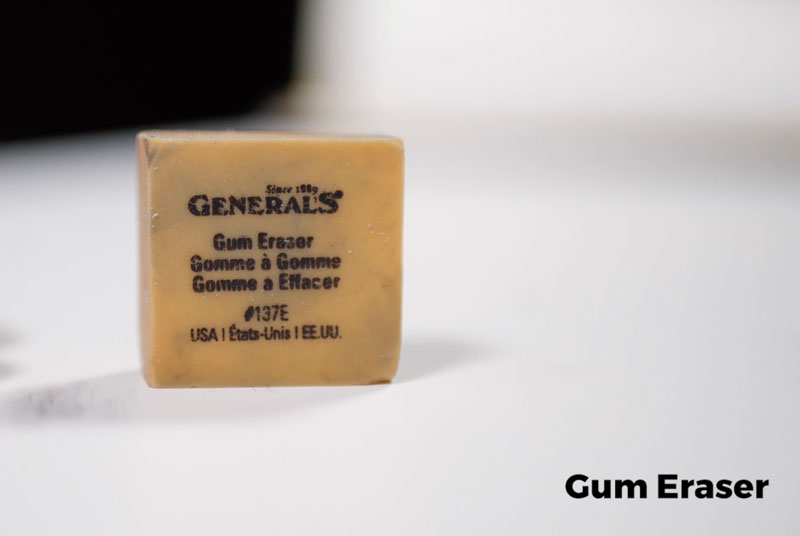
Typically, I don’t use a gum eraser for altering artworks. Instead, I use it most often to clean up edges around finished artwork or to clean mats before I mat and frame a piece of artwork. These erasers are great for cleaning the surface if there are small marks before starting on the finished artwork.
Vinyl or Plastic Erasers
The next eraser is called a vinyl or plastic eraser. This eraser is the toughest of the bunch and is capable of lifting graphite completely from the surface. One drawback is that it can damage your paper if you’re not careful. This eraser doesn’t require too much effort to remove the graphite from the surface. While this eraser does leave some shavings, for the most part, they’re larger pieces that stick together, making them a little bit easier to remove. Because vinyl or plastic erasers are so tough, they can be used in an eraser holder. This allows the artists to erase with more precision.
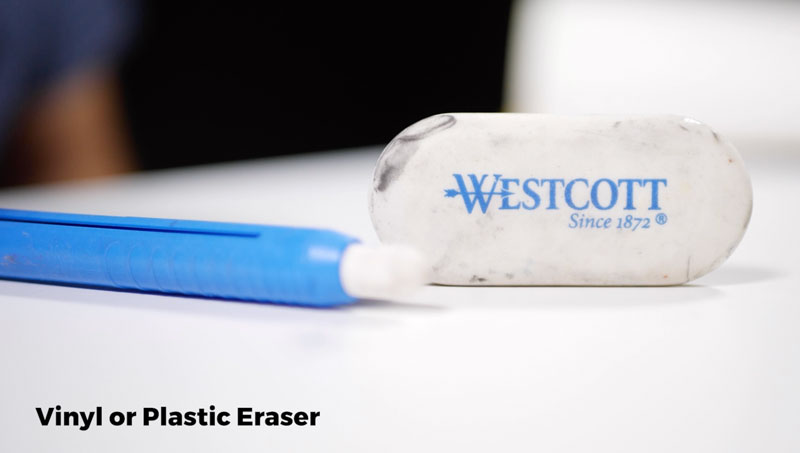
I often use vinyl or plastic erasers to remove some of the material from the surface to create highlights.
Vinyl or plastic erasers are strong enough to erase colored pencils in some situations and are also used in electric erasers. This eraser is super strong and allows for precision.
Kneaded Eraser
The fourth type of eraser is a kneaded eraser. Kneaded erasers are perhaps the most versatile eraser of the bunch. They’re definitely the softest and require the most effort to remove the graphite from the surface. One of the advantages of using a kneaded eraser is that you can mold it into any shape that you wish, creating a variety of different marks.
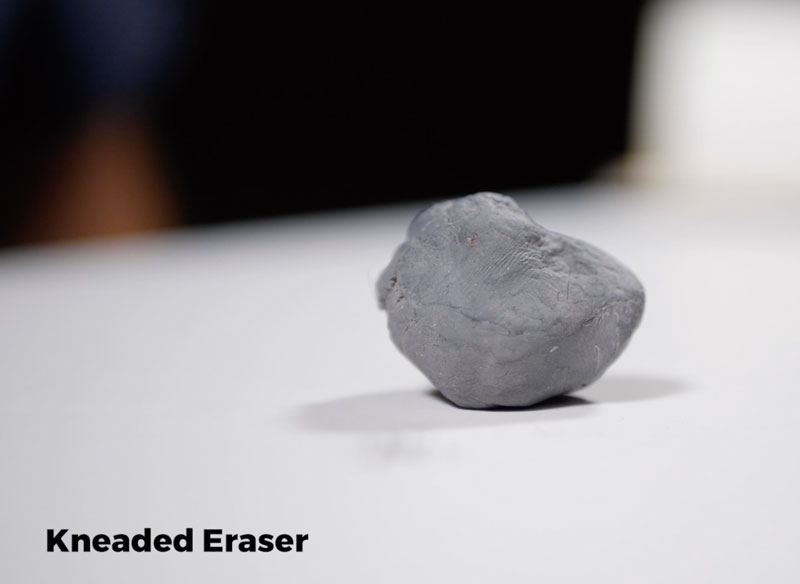
A kneaded eraser lifts the graphite without leaving any residue at all. It also preserves the tooth or texture of the paper. You can use a kneaded eraser to just dab the surface, gently lifting up the graphite from surface, preserving the texture underneath.
For nearly every drawing that I create, I have a kneaded eraser on hand. It’s definitely my favorite eraser. It gently lifts up the material and it can also be used to clean up the edges of finished artworks.
This eraser is also great for erasing any pencil marks that might remain over, perhaps a pen and ink drawing. This eraser will remove the graphite marks, but preserve the ink drawing.
Most of the other erasers we’ve covered will smear some of the material, but a kneaded eraser can be used with a dabbing motion to lift up the material, creating a lighter appearance.
Best Erasers for Drawing – Conclusion
So there you have it, four of the most common erasers used by artists to create drawings. My favorites are the vinyl eraser and the kneaded eraser. Each eraser has its place in creating drawings, and every artist will have their favorite.
If so, join over 36,000 others that receive our newsletter with new drawing and painting lessons. Plus, check out three of our course videos and ebooks for free.

